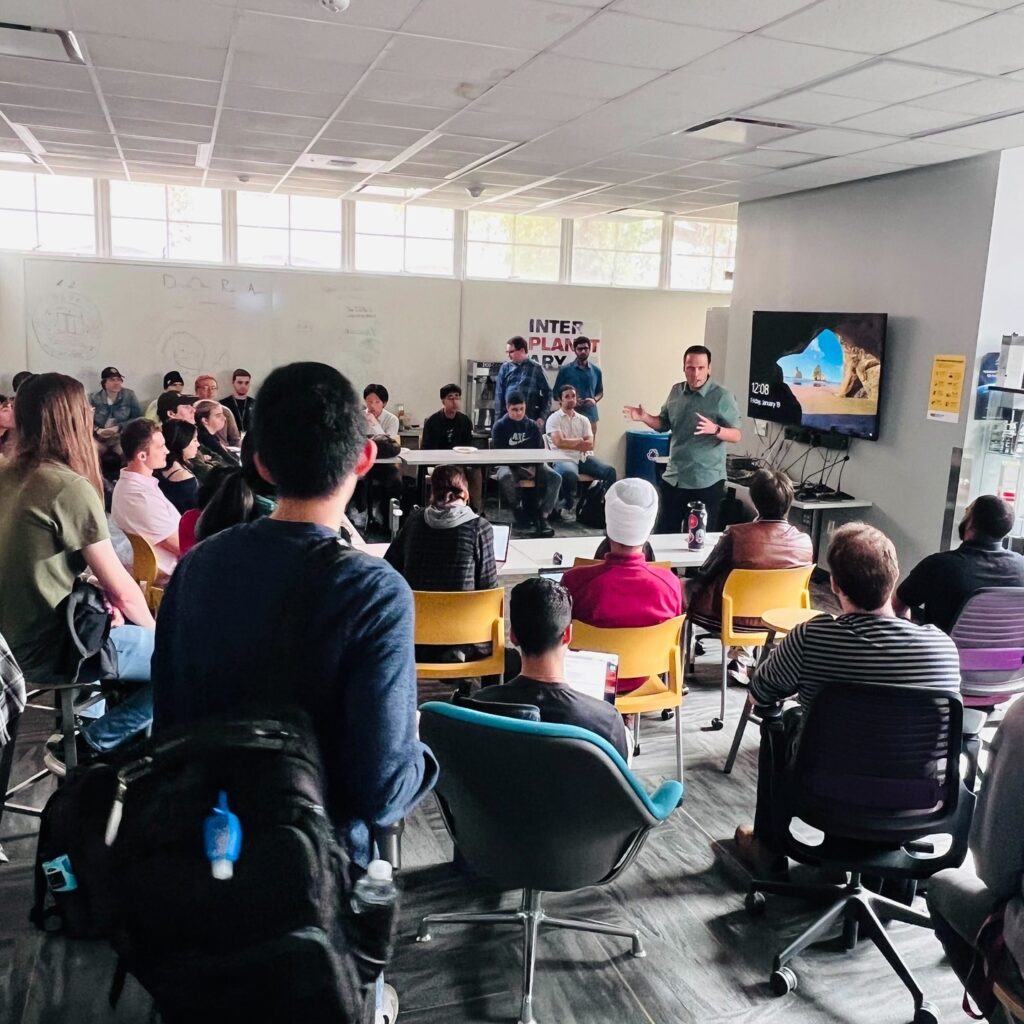ASU students learn from space industry companies
The Arizona State University’s Space Collective has become a pivotal network, bridging commercial space companies with ASU students, faculty experts, and cutting-edge research spanning the university and Arizona. These collaborations open doors for companies to establish a workforce pipeline by engaging with students in various capacities.
One example is SpaceBites, a popular student-industry Ask-Me-Anything series hosted at the Interplanetary Lab, offering a dynamic space for ASU Space Collective members to engage with students and tailor the conversations to their business objectives. In return, students gain direct access to industry experts, fostering a vibrant exchange of ideas and professional opportunities.
In January, ASU hosted Matt Gialich, co-founder and CEO of AstroForge, a company dedicated to making space resources accessible on Earth by aiming to mine and process platinum from asteroids within a decade timeline. Students of all majors were encouraged to attend and learn about the technology Astroforge is utilizing, as well as understand the importance of geology when dealing with asteroid surfaces that can often be unpredictable until observations can be made upon arrival. Internship opportunities and career pathways were also discussed during the session.

The SpaceBites program also features students that ask “the most thought provoking question” on the Interplanetary Initiative’s social media platforms! Berkeley Adair, an Aerospace Engineering student, took the trophy for her exceptionally great question around importation of material; “Since you will technically be ‘importing’ goods to Earth, are there any taxation laws in place right now or do you anticipate any being developed in the future? Potentially by the country it lands in/near or the country that launched the mission?”
Jeremiah Pate, CEO and founder of Lunasonde, a company that is providing data on Earth’s subsurface from satellites currently in orbit, also visited ASU students in January. The company aims to provide geographical information about our planet’s resources in a sustainable manner. Jeremiah outlined the company’s ambitious roadmap, which includes pinpointing groundwater, mineral deposits, and a gamut of geological treasures to construct a comprehensive 3D map of Earth’s subsurface. He also spoke to future internship opportunities and career paths within Lunasonde, sparking enthusiasm among the students. The winning question of the day came from Victoria DeFazio, a senior in astrophysics with a minor in Italian: “What instrumentation are you using on your cubesats to see beneath the surface?”
In February, ASU welcomed back one of its accomplished alumni, Dr. Kevin Hubbard, now a proposal lead and planetary scientist at Honeybee Robotics. Dr. Hubbard’s visit not only showcased his affinity to ASU but also provided valuable insights into Honeybee Robotics’s cutting-edge research and development initiatives. He shed light on the company’s pioneering efforts in manufacturing engineering, crafting unique solutions for challenges spanning Earth and space environments.
During the session, two students stood out with their insightful questions for Dr. Hubbard. Vishvali Deo, pursuing an M.S. in robotics and autonomous systems, inquired about the cultural dynamics at Honeybee Robotics and what aspects Dr. Hubbard found most appealing. Ben Weber, a senior in aerospace engineering, asked about the company’s extensive project portfolio over its four-decade history since its inception in 1983.For students eager to learn more about the space industry and connect with leading companies at the forefront of innovation, signing up for the Interplanetary Initiative’s newsletter and the ASU Space student mailing list is a must. Stay updated on events like SpaceBites to help carve your own career path in space.